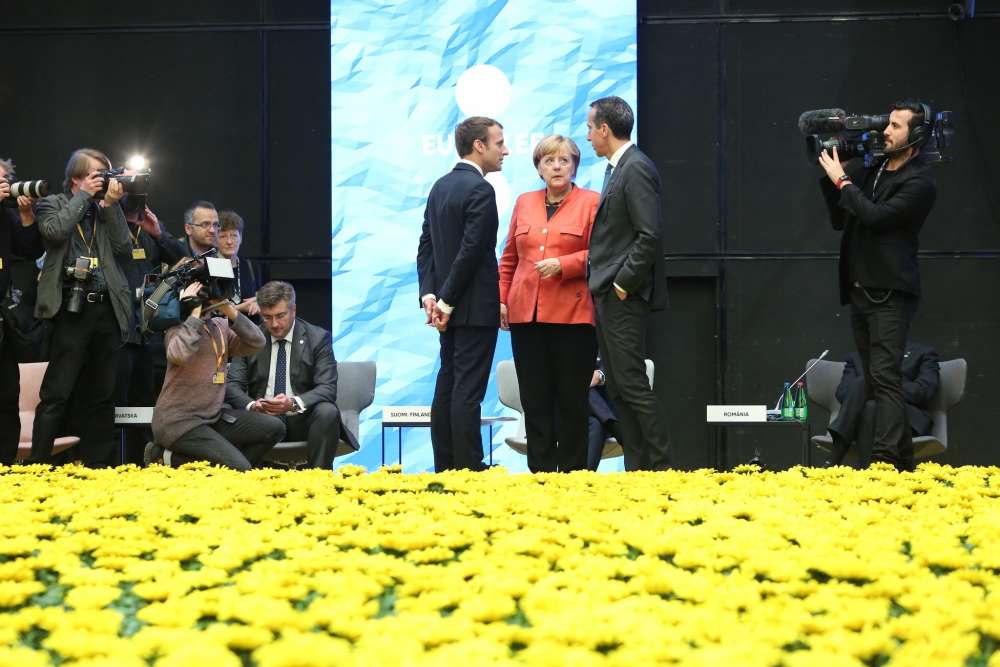European Defense: Just All Right?

In the 1980s British satire Yes, Prime Minister, when reeling at the cost of defense, the British prime minister asks wistfully whether they couldn’t just persuade the Americans to strengthen their forces instead. His aide advises against it, and against relying on European forces, who are just “all right… on weekdays, anyway.”
From the British perspective, the scene reflects Washington’s longtime gripes over insufficient European contributions to transatlantic defense, which led former president Barack Obama to label Europeans “free” class=“redactor-autoparser-object”>www.theatlantic.com=””>free riders” and President Trump to demand they pay their “fair” class=“redactor-autoparser-object”>www.theguardian.com=””>fair share,” accusing Germany of owing “vast sums of money” to NATO.
However, a recent flurry of activity spearheaded by Germany and France in defense has emerged as a result of new impetus from developments like the impending departure from the European Union of the United Kingdom, a security heavyweight and often a veto on EU-based defense integration. While this push could be more of the same — after all, crises have repeatedly generated much talk with little action in European defense — certain changes should not be overlooked. In particular, French president Emmanuel Macron has articulated a French strategy that emphasizes pragmatism over ideology and engaged with Berlin to strengthen European defense.
True, French-German cooperation is not a panacea for European defense, but it is an important catalyst. Thus, it is worth asking whether the incoming German government will be able to support such efforts. Despite the analysis that the biggest loser of the September German elections was Macron and his aspirations for the European project, it is economic rather than defense proposals taking the brunt of the blow. Within Germany’s anticipated next governing coalition between the Free Democratic Party (FDP), the Greens, and German chancellor Angela Merkel’s Christian Democratic Union and its Bavarian sister party (CDU/CSU), the FDP rejected Macron’s Eurozone proposals; however, this does not preclude defense cooperation. Broadly, the parties support Macron’s overtures. Green Party co-chair Cem Özdemir urged Berlin to “take Macron’s outstretched hand,” while Merkel’s relationship with Macron, close enough to attract celebrity-style nicknames like Emmangela, barely needs mentioning.
The deeper question is whether such a partnership with the next German government will stimulate increased capability in defense rather than primarily symbolic gestures. Here, the German debate over increasing the defense budget to meet the 2 percent NATO pledge is an indication. Both CDU and FDP support this; the Greens reject an increase, opting instead for broader security contributions through peacekeeping. More important, though, is how this money is spent. Given that the CDU has come under fire for consistent inefficiencies in defense spending, the FDP and Greens are arguing for more efficient use of funds. Whether they can put their money where their mouth is will be the test of the next government.
Thus, depending on the end result of the coalition negotiations, France could very well see a supportive partner in defense initiatives, but of greater interest to Washington will be whether substantive change follows. This will depend not only on the political impulses of the incoming government but also on navigating longer-term differences in strategic culture, which despite some development, traditionally sees Berlin favoring European defense as a political project facilitating integration, whereas Paris is more eager for a military project boosting capability. Barring meaningful changes, the consolation prize will simply be that jokes like that in Yes, Prime Minister never seem to get old.
…
This commentary was originally published by the American Institute for Contemporary German Studies at Johns Hopkins University on November 9, 2017.







